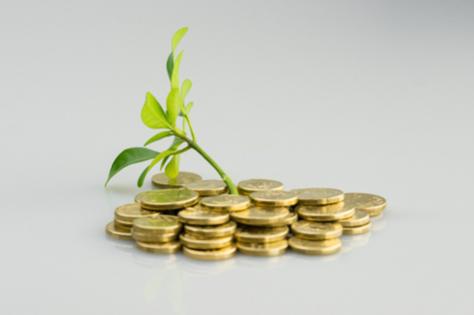During the most difficult times in our lives we lose sight of how we can put money aside and invest in our financial futures. Now don’t think you’re alone in this because it happens to all of us.
It’s in our face all the time at the supermarket and the petrol bowsers, even the tuck shop. It constantly seems like the cost of living is on the rise ... especially now with the recent Federal Government budget which has put many of us into alarm mode.
The thing is it’s a fact of life. We must be mindful that even though the cost of living may be going up and even though we may have to tighten our belts a little bit, there are principles we have to abide by.
To create future financial comfort we must learn to save. It’s fundamental. It’s not the amount of money we save; it’s simply the habit of saving something. We need to learn to put something aside that we can grow ... something with which we can create wealth for ourselves and our children in the future.
I find that women are very good at being able to stretch the dollar. They’re great at hunting out a bargain and they’re fantastic at going out shopping together with their friends and getting a good deal, especially with things such as bulk buying.
One of the things we must learn is how to stretch our dollar and multiply it. Remember, if you wait for there to be something left over, you will always discover there’s nothing left for you to invest with.
So what can we do in these times to still put something aside and create great wealth?
1. Well, first of all we have got to make it a priority
Yes, I understand it is difficult but the principle still remains the same. You may not be able to do as much as you could before, but at least do something. Remember, doing nothing doesn’t work! I think one of the ways we can save a bit of money or stretch the dollar further is to buy in bulk. And while it may be a bit of a hit to the pocket at first, it stretches the dollar further.
2. The next key I think is to take advantage of bargains
There is always a bargain to be had or a deal to be negotiated and if you’re saving that money, put it away. For example, the other day I had to go and buy some tyres for my car. I went and got a quote for it. After the third quote I discovered I could save approximately $100 to $150 on a different brand of tyres. It would still give me the same functionality as the other tyres but it wouldn’t cost as much. This allowed me to redirect my savings into my investment account moving me closer to my financial goals. So look out for bargains. Always look for ways that you can stretch the dollar.
3. Here’s another vital key: learn to be resourceful
Think creatively when it comes to money and then put that money aside in an account called something like “SAVINGS. DON’T TOUCH” or “BUILDING FOR THE FUTURE”. These titles constantly remind you of your goals. And once you hit a financial goal, it’s important to give yourself a little reward. It doesn’t have to be extravagant; it just has to be something that acknowledges a job well done for the allocations of money that you’ve made to your future financial goals.
4. It’s also very important to simplify our lives to suit our post investment income
When I say simplify our lives, I mean take a critical look at the stuff we have and decided whether we really need it. I have found that many of us spend money on stuff we don’t really need. It even goes to our utilities. I know people who go around the house and turn off every power point before they go out or go to bed. It works for them... so perhaps this could be a good strategy for you too.
5. The next key is to think long term
This is a new way of thinking for many people and new habits take time to establish. We must remember... wealth of any sort is never a quick fix pill.
- Wealth is built over time
- Wealth needs to be built strategically
- Wealth will be built with great advice.
6. Finally, remember all of us are prone to waste
But if you take the philosophy that you will be an investor first and a spender second, you will save yourself from falling into the trap of wasting money.



















__small.png)










